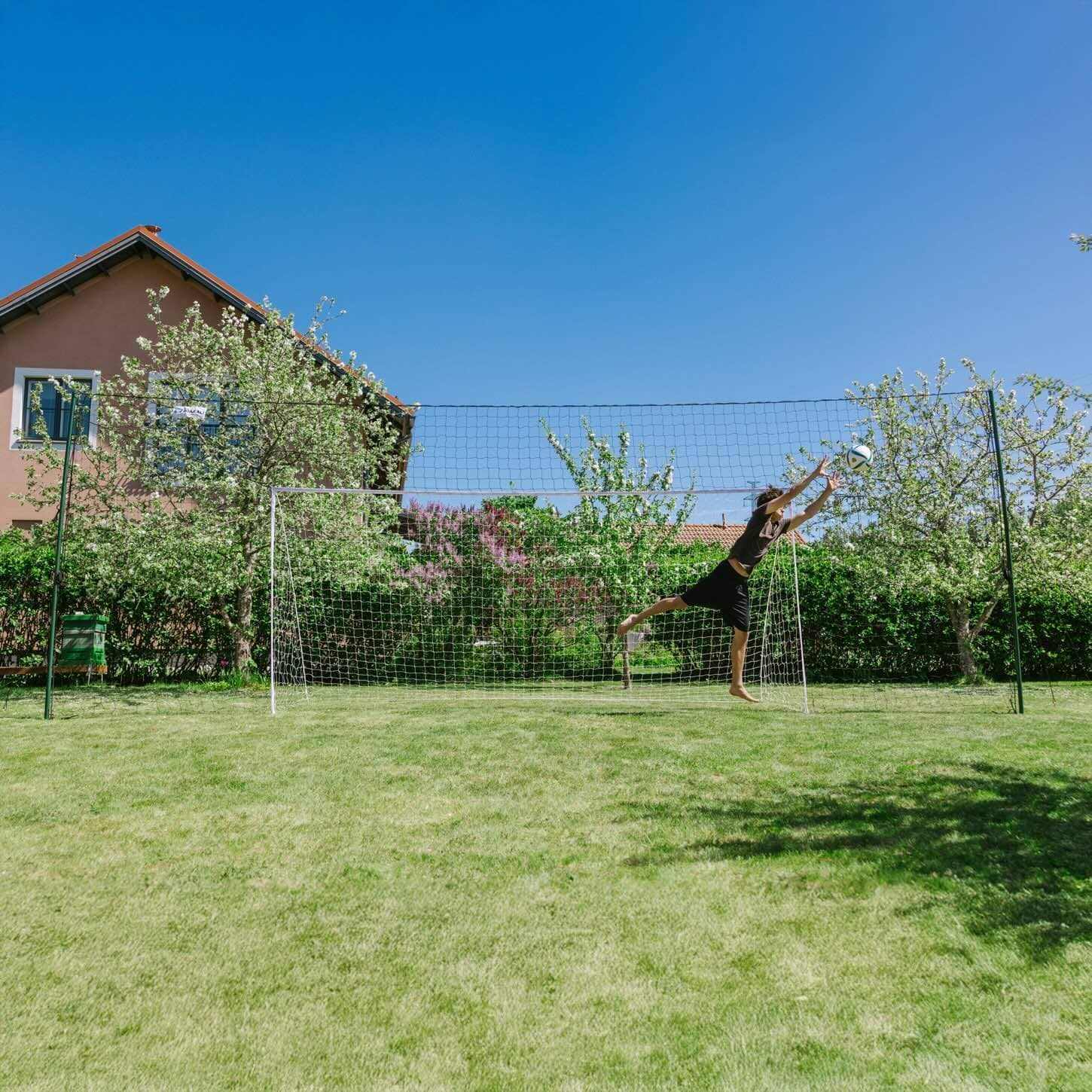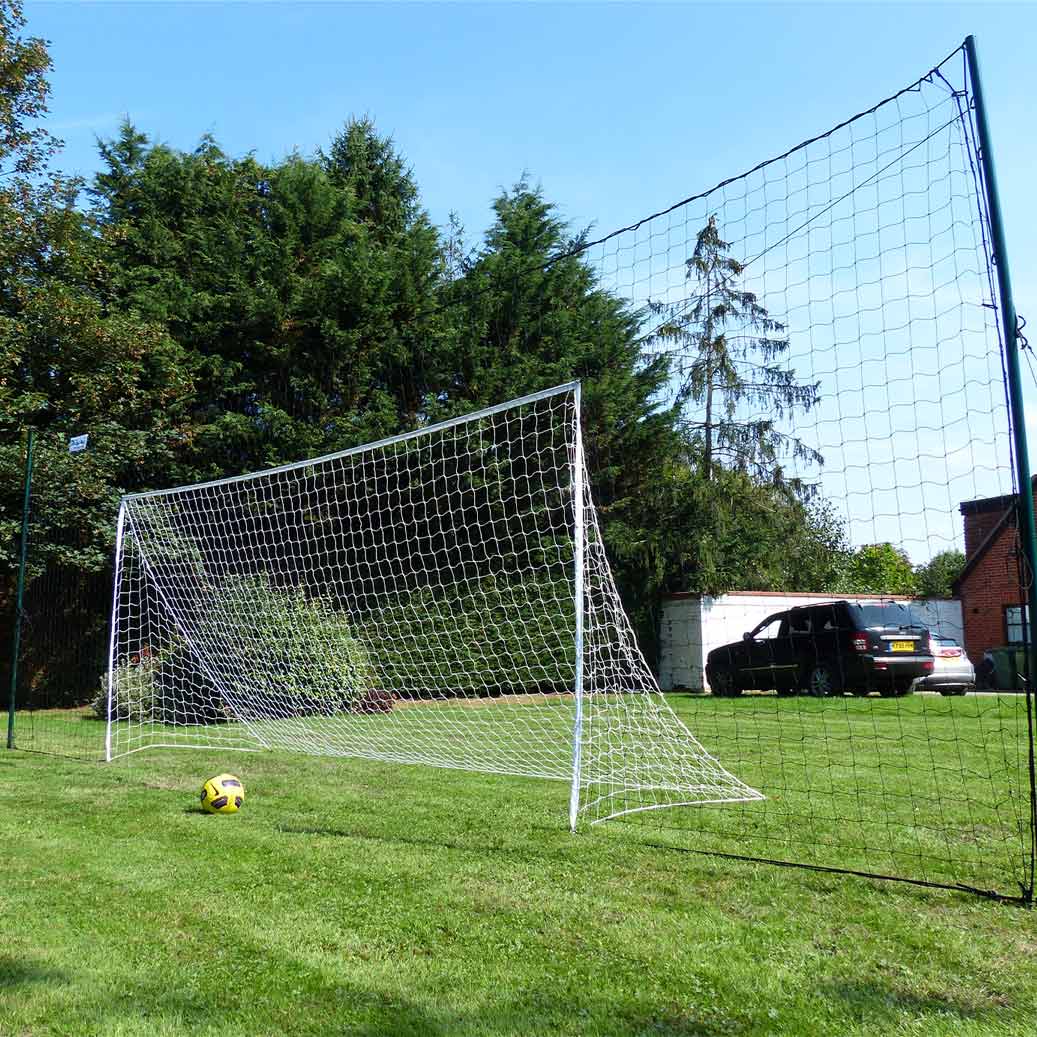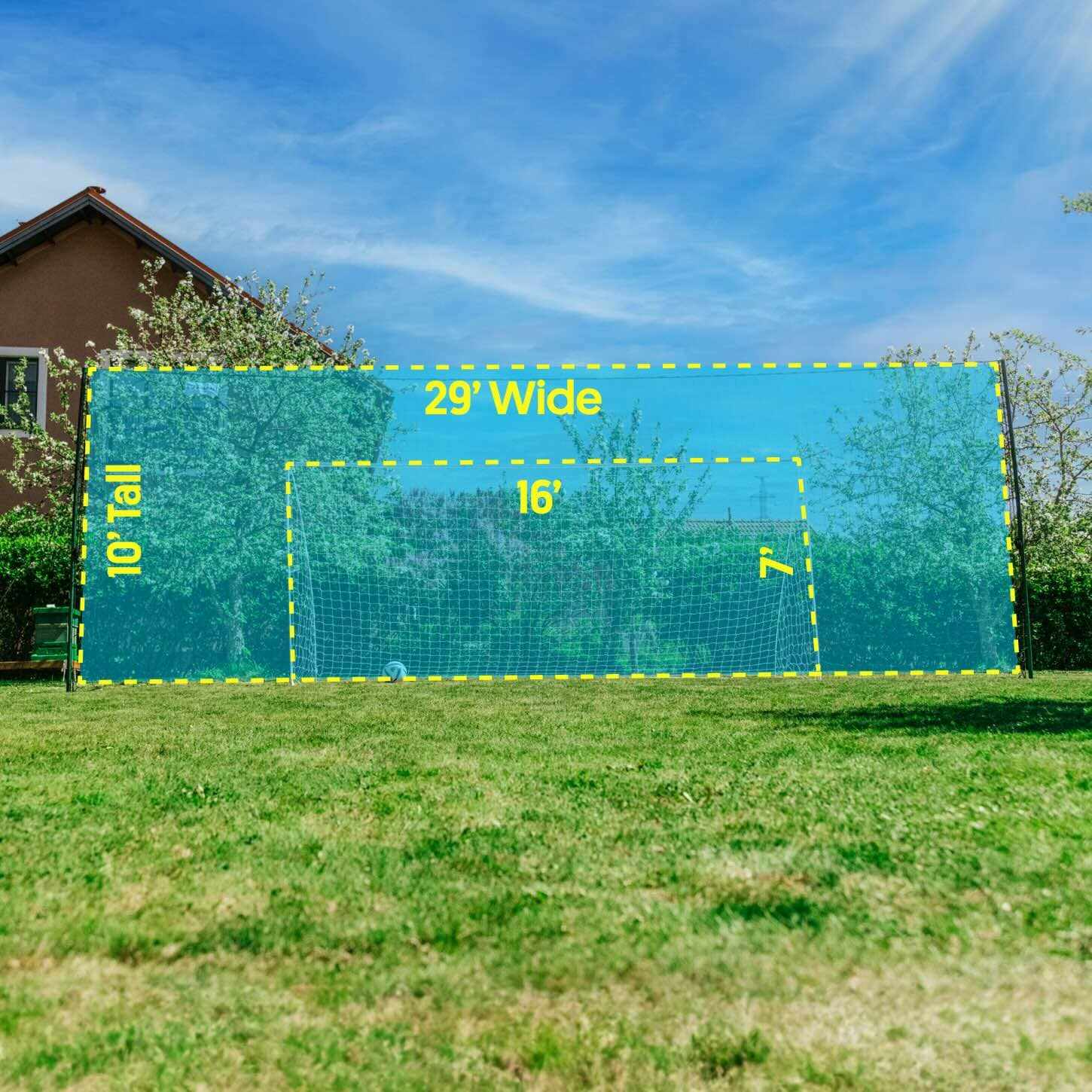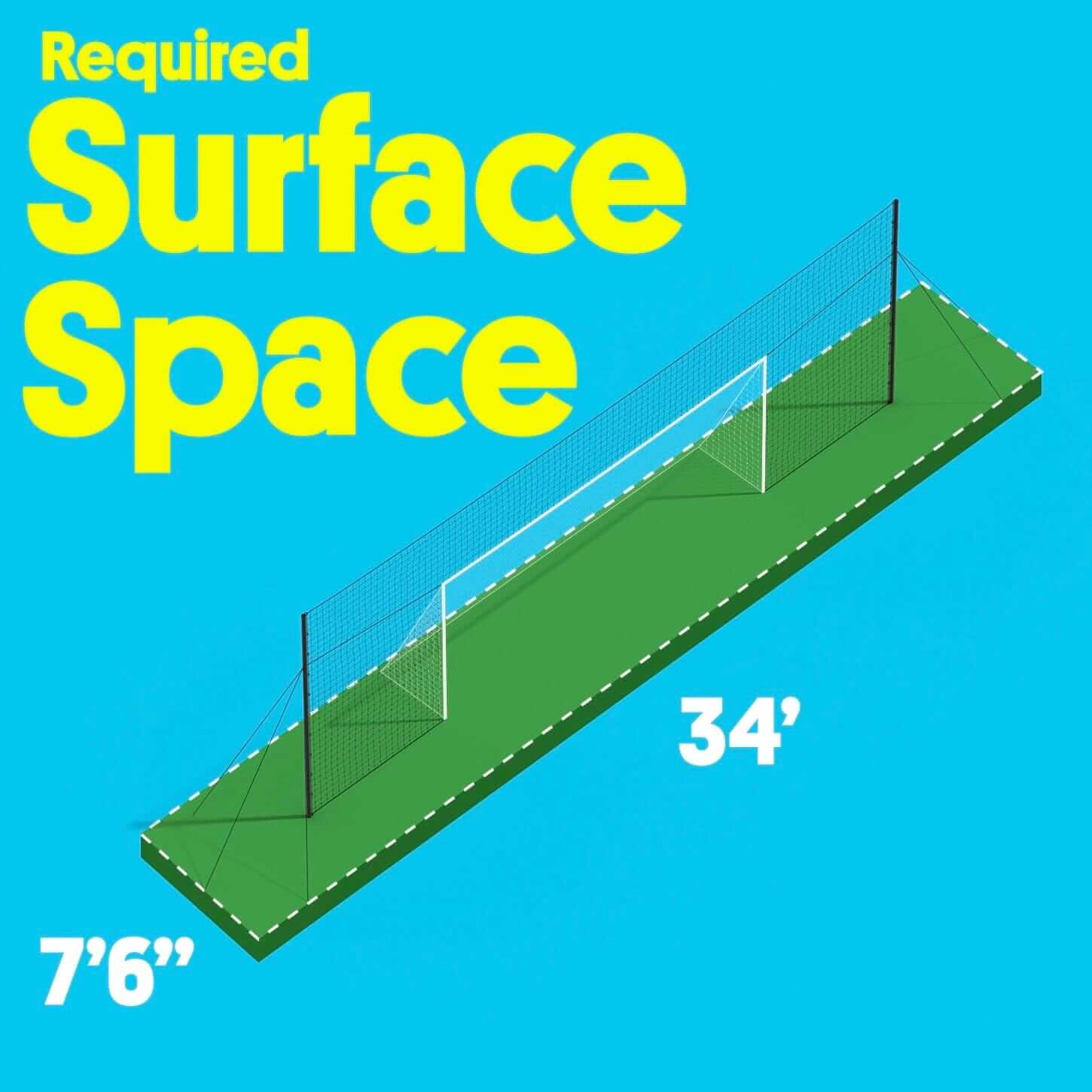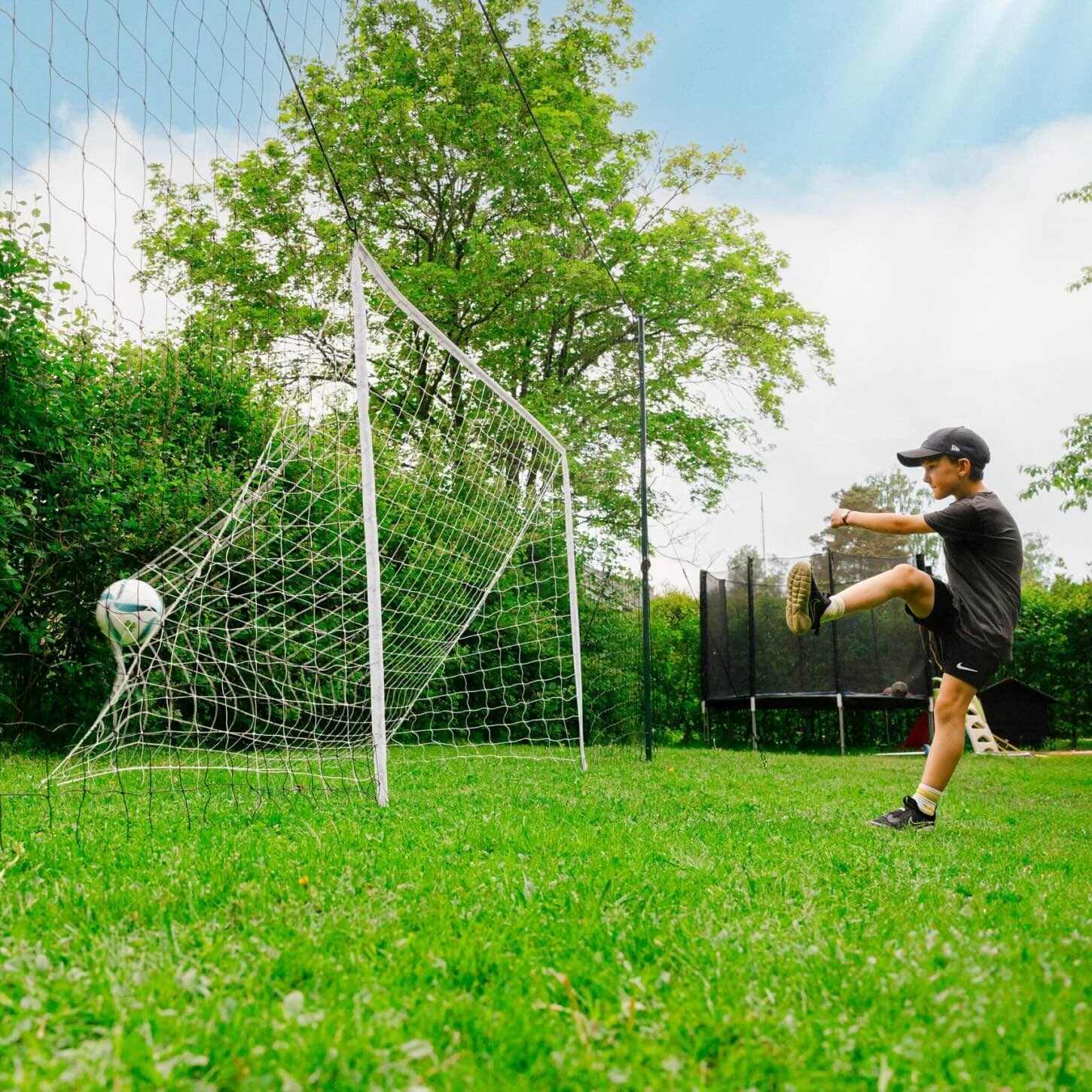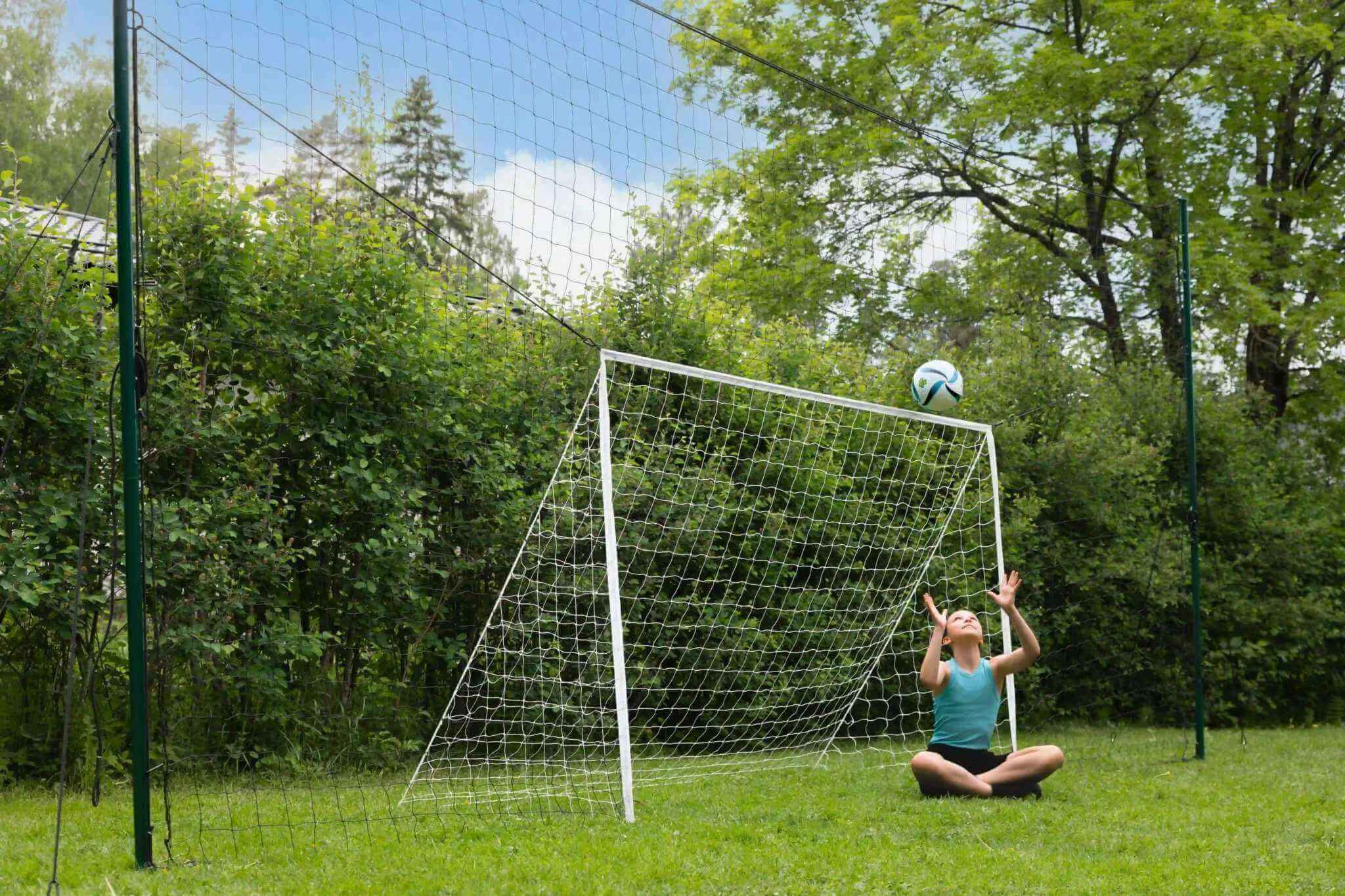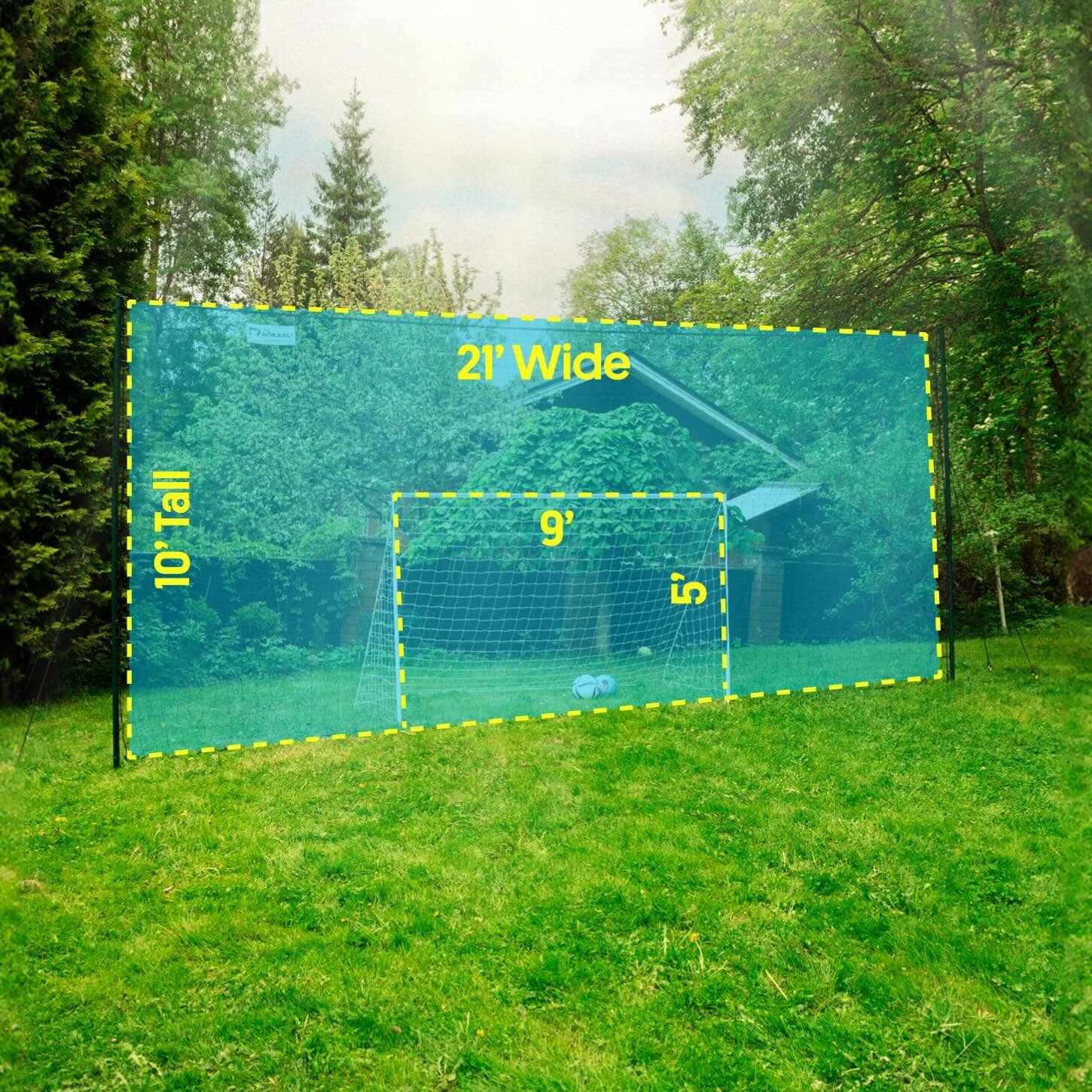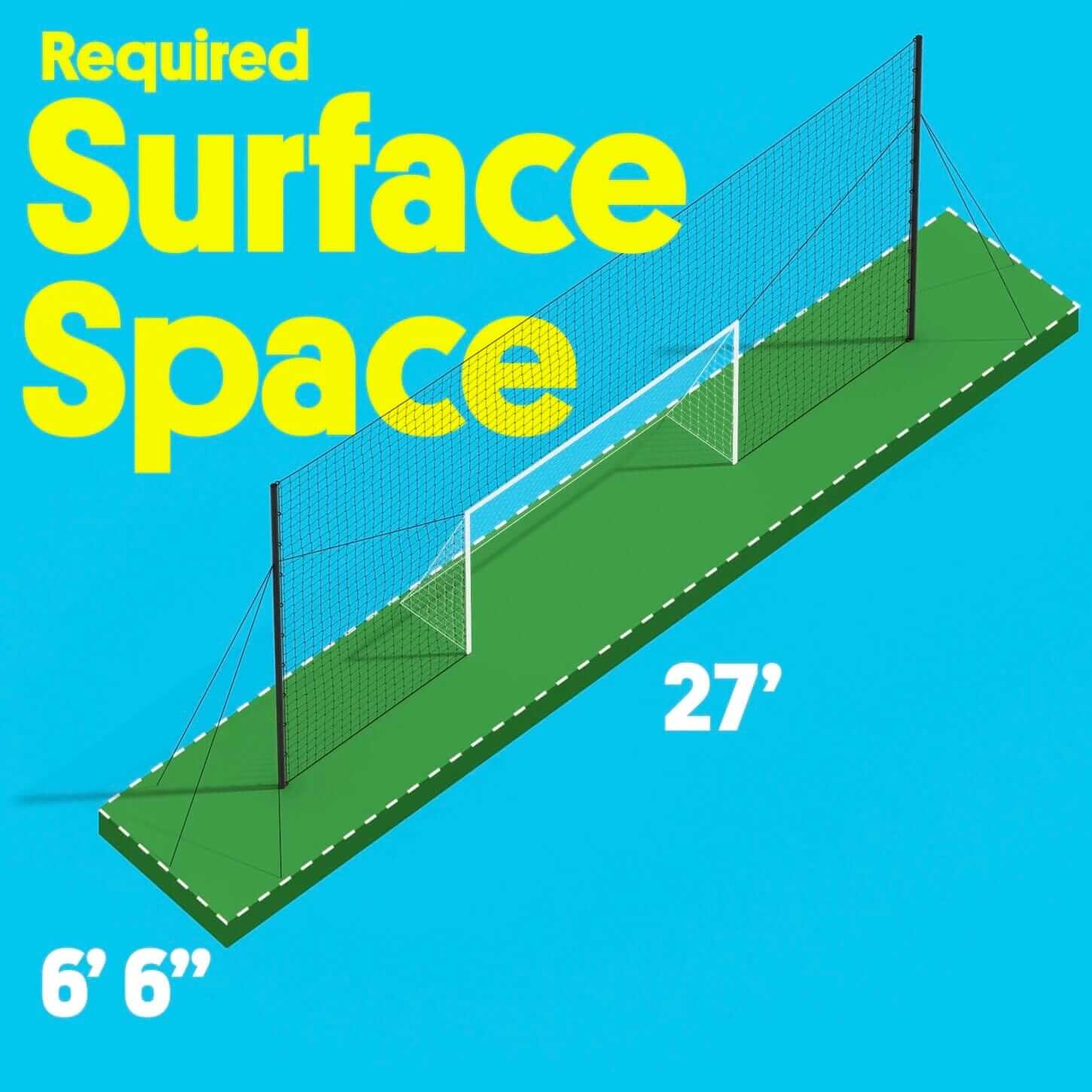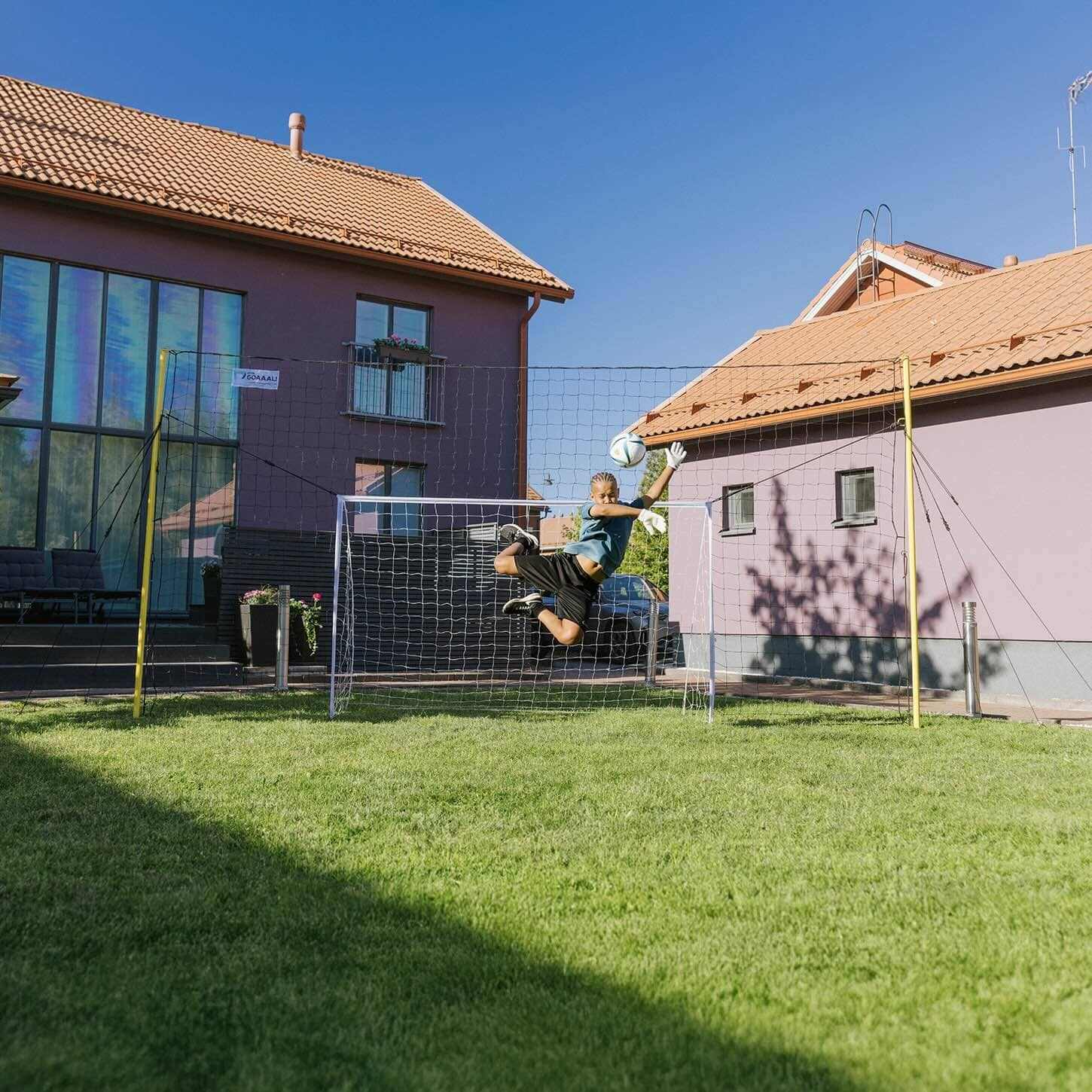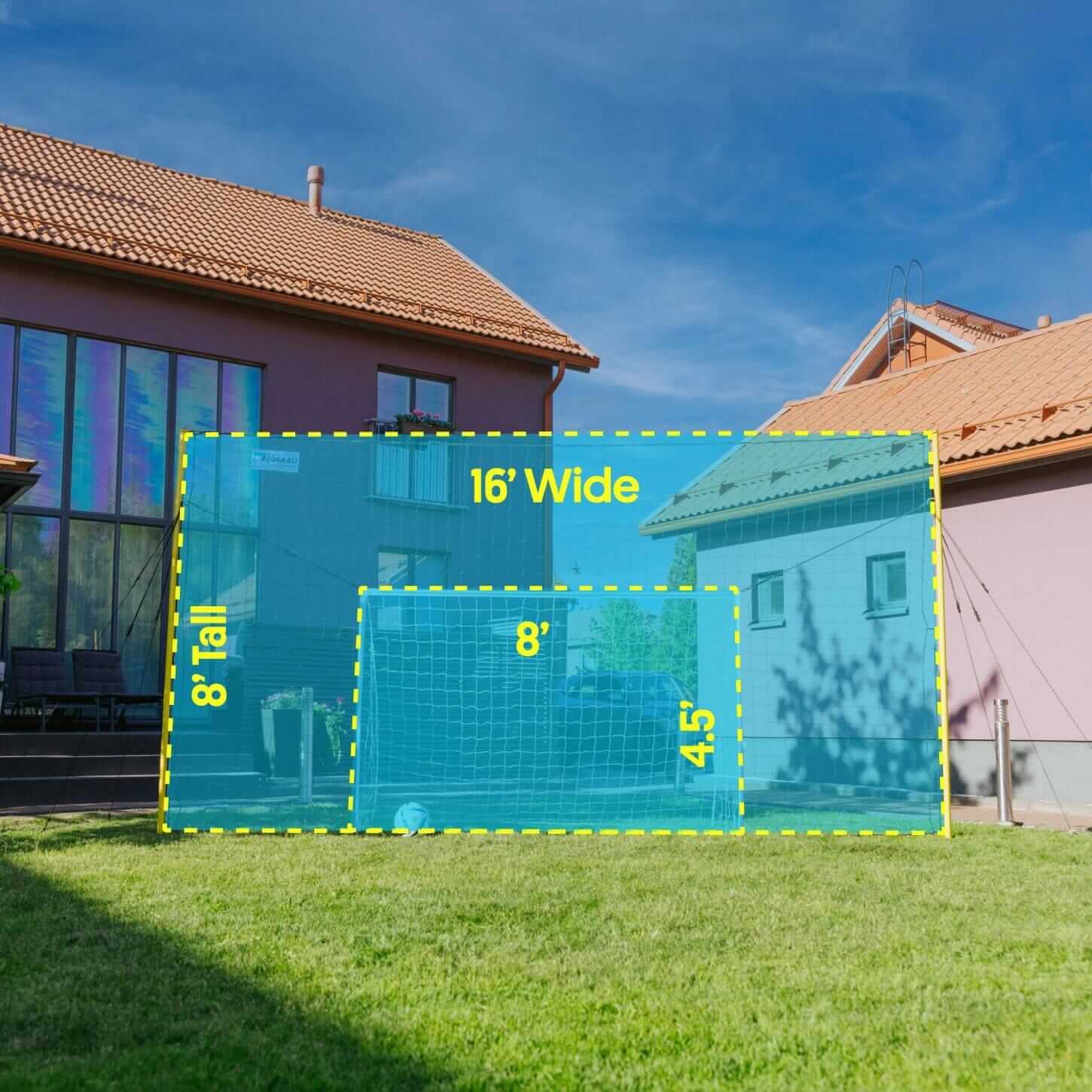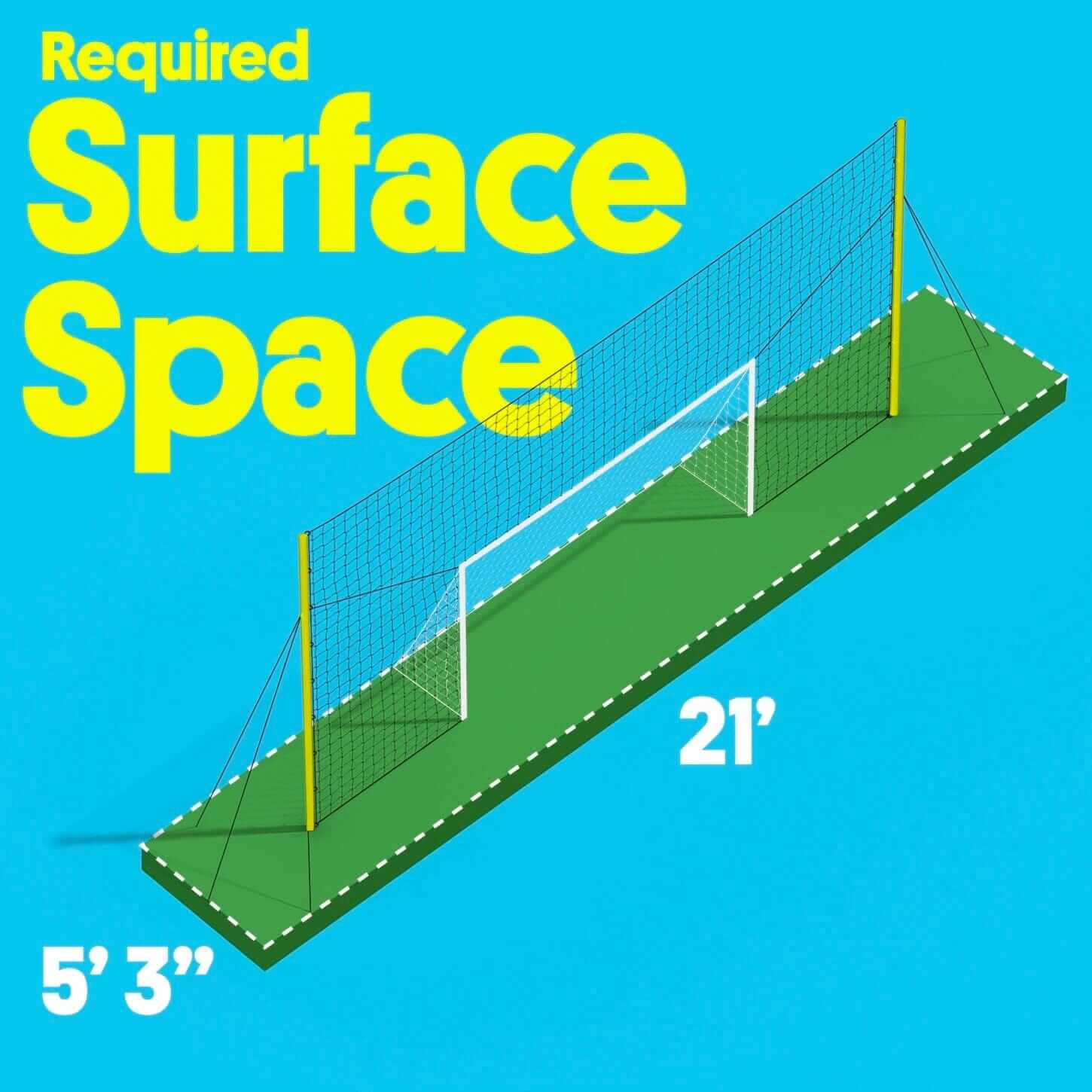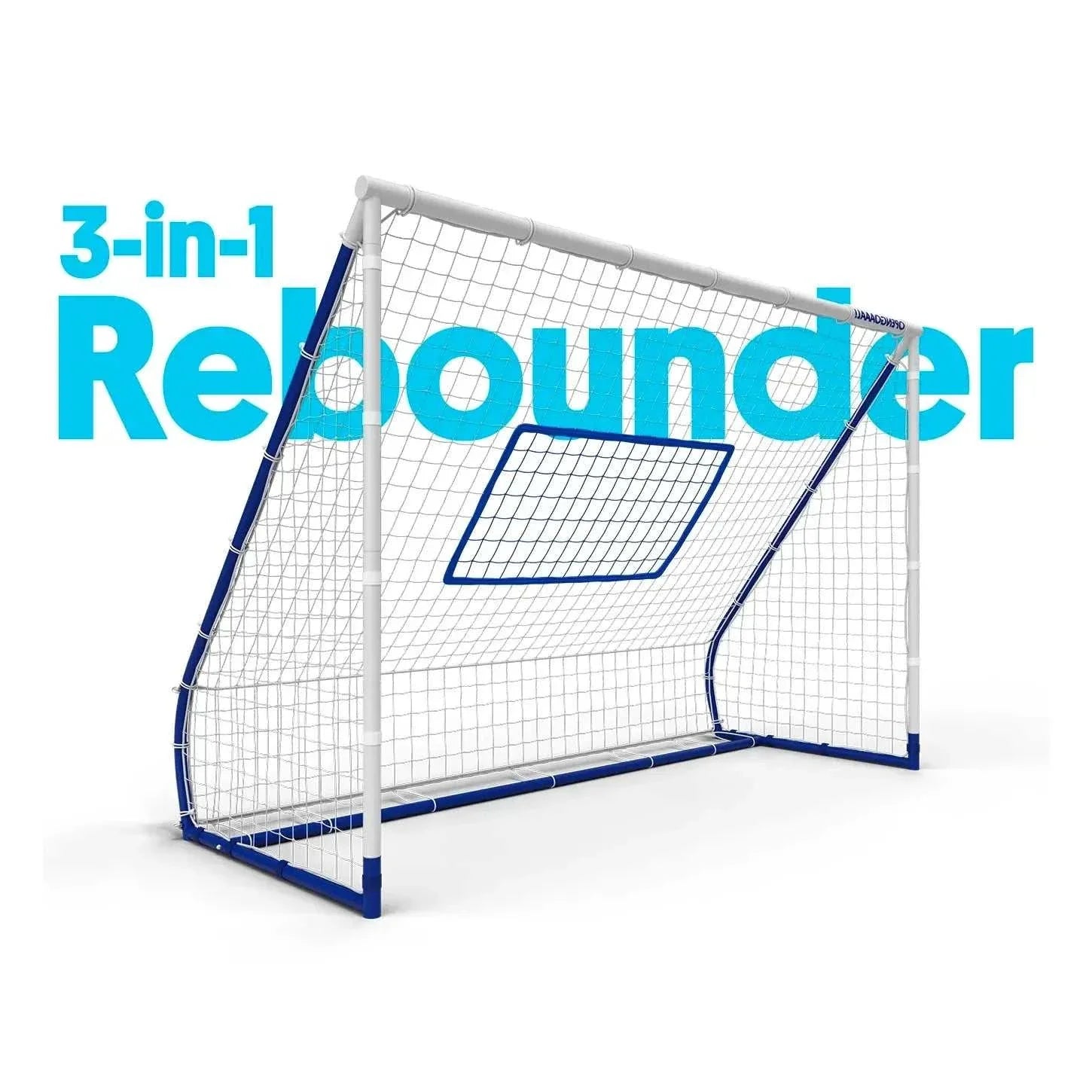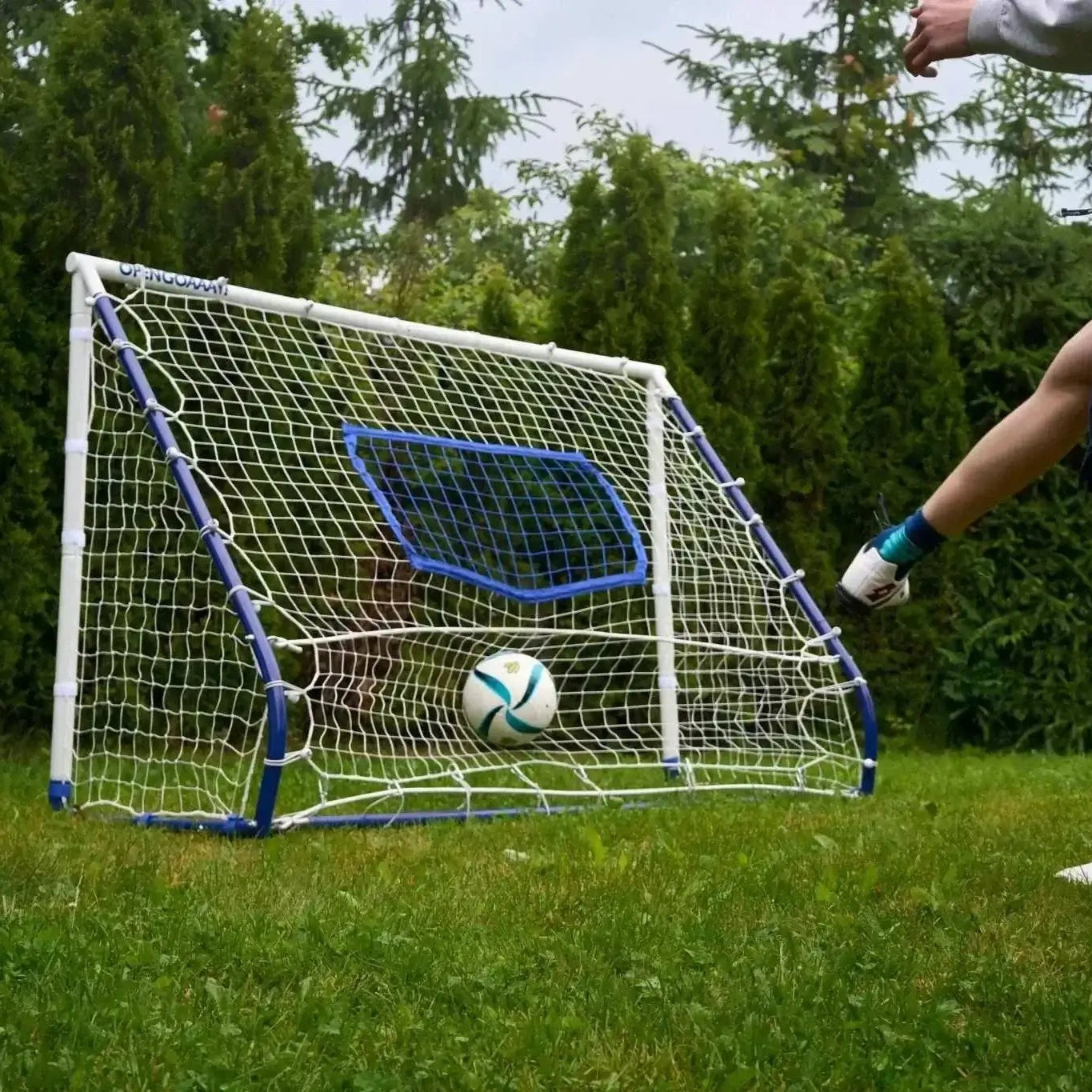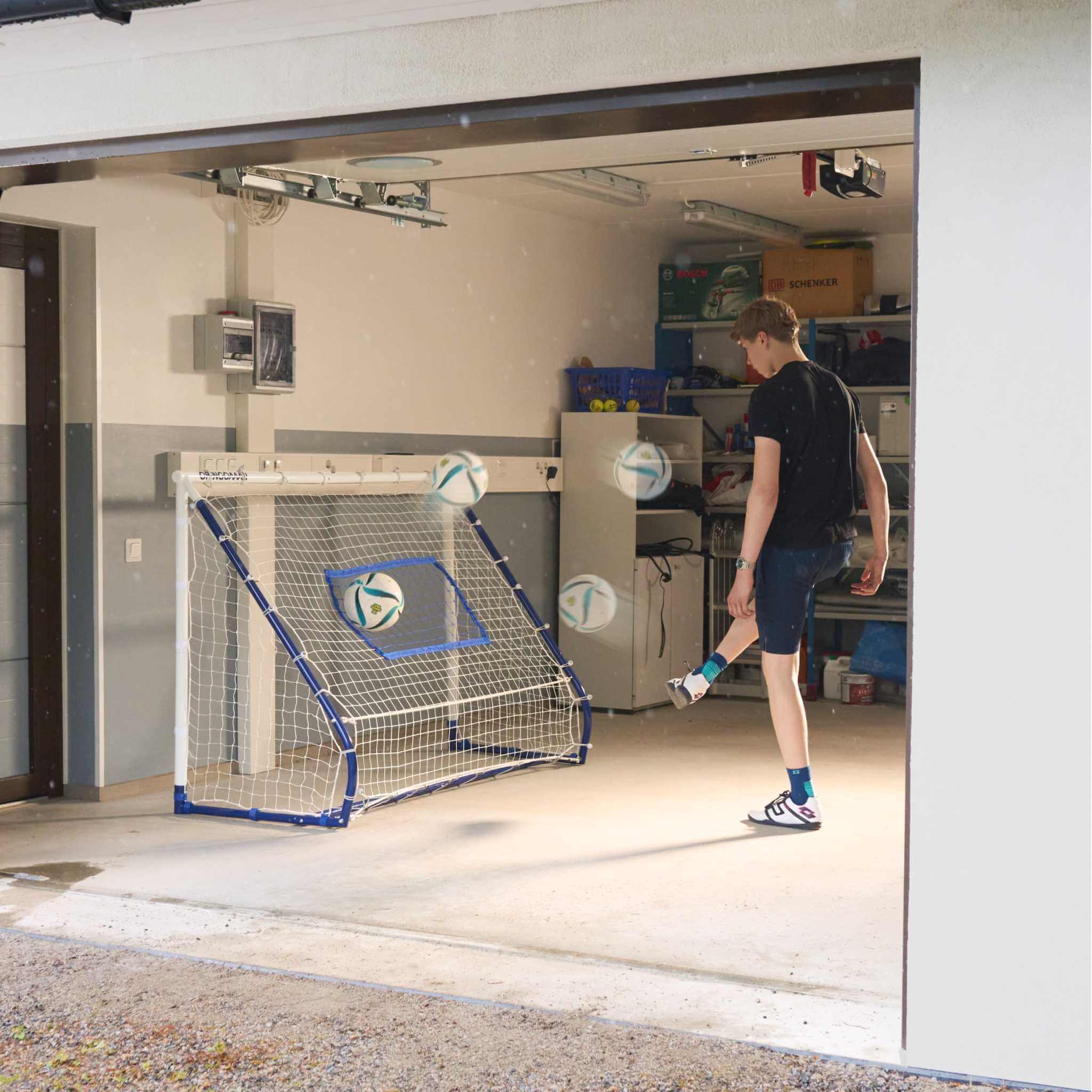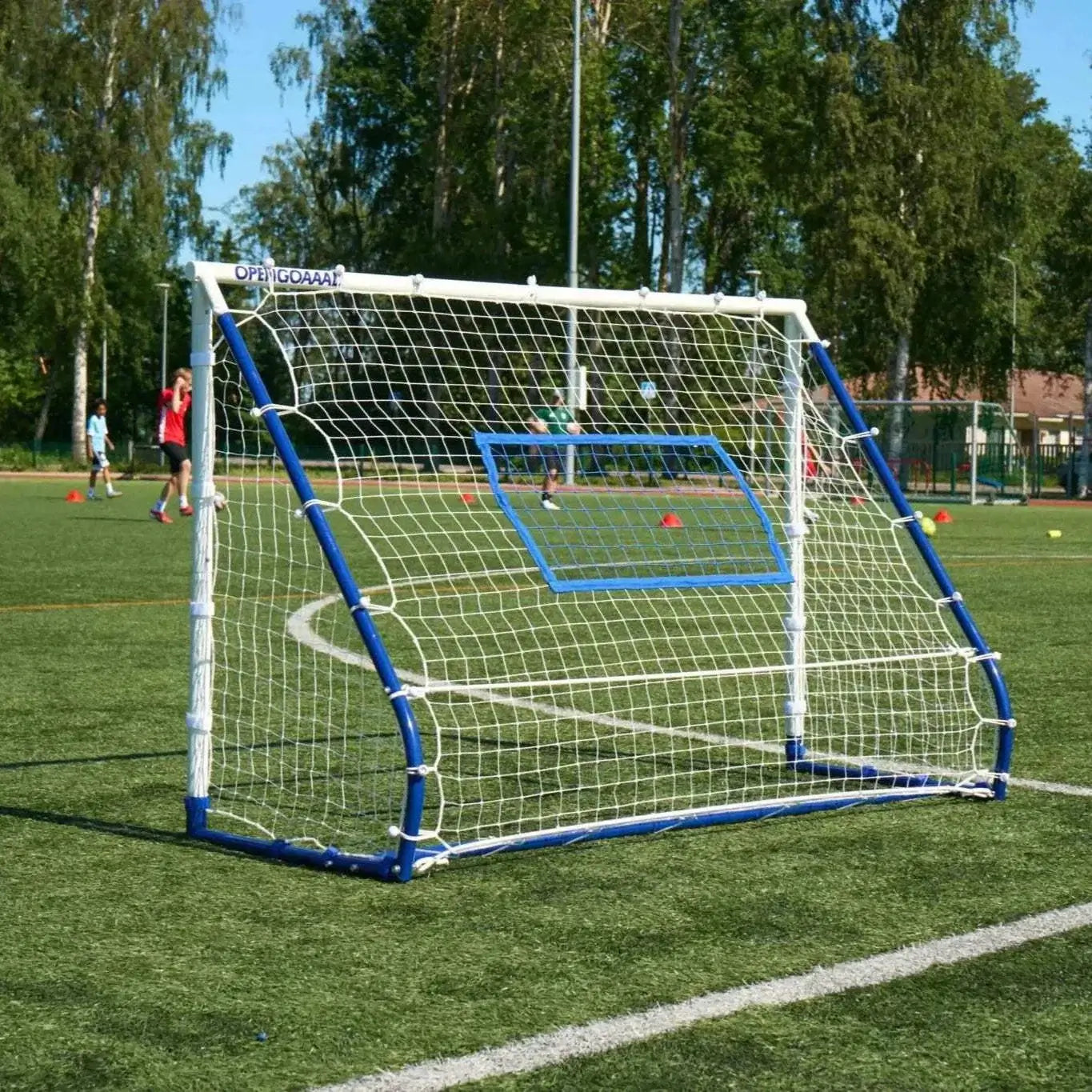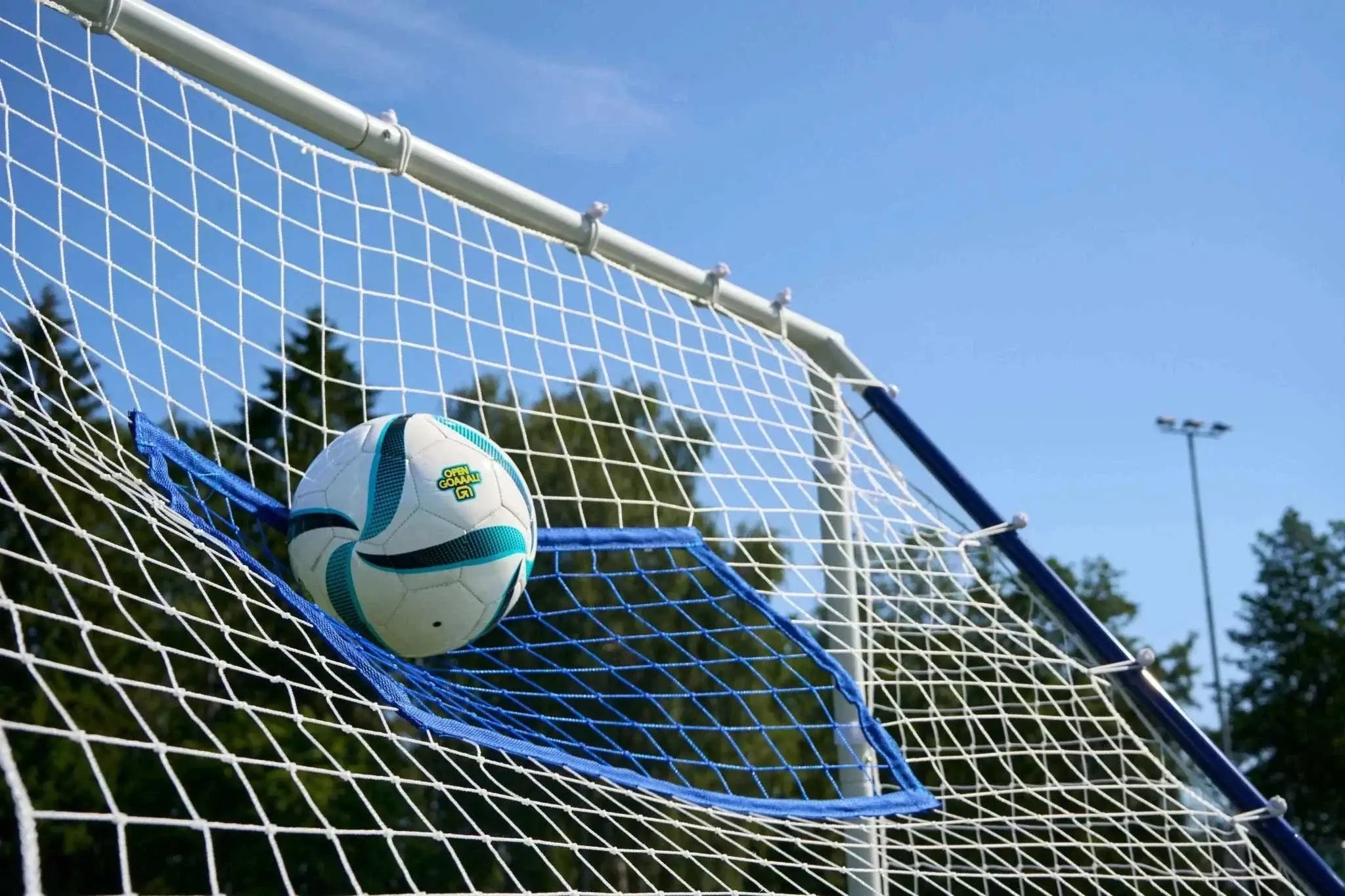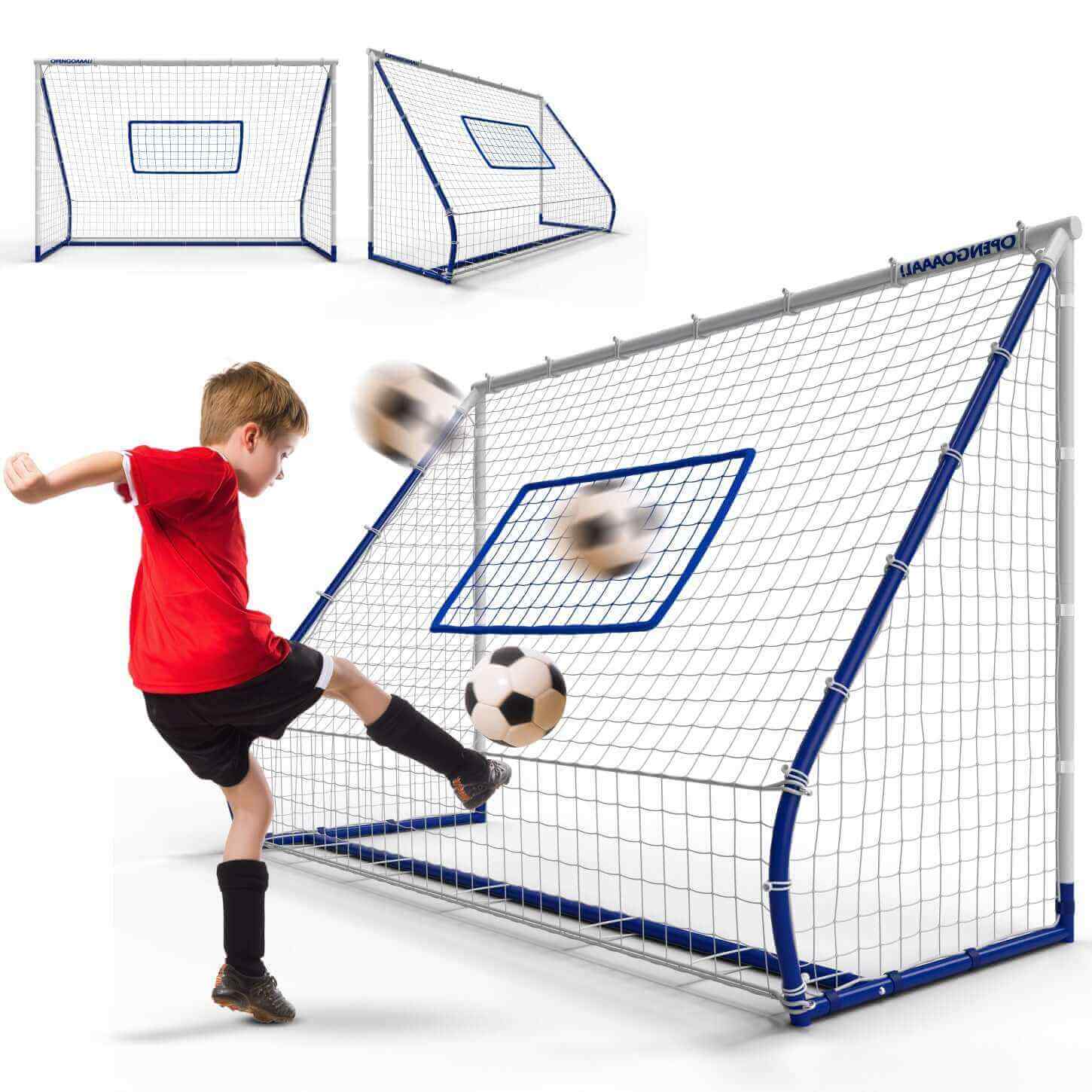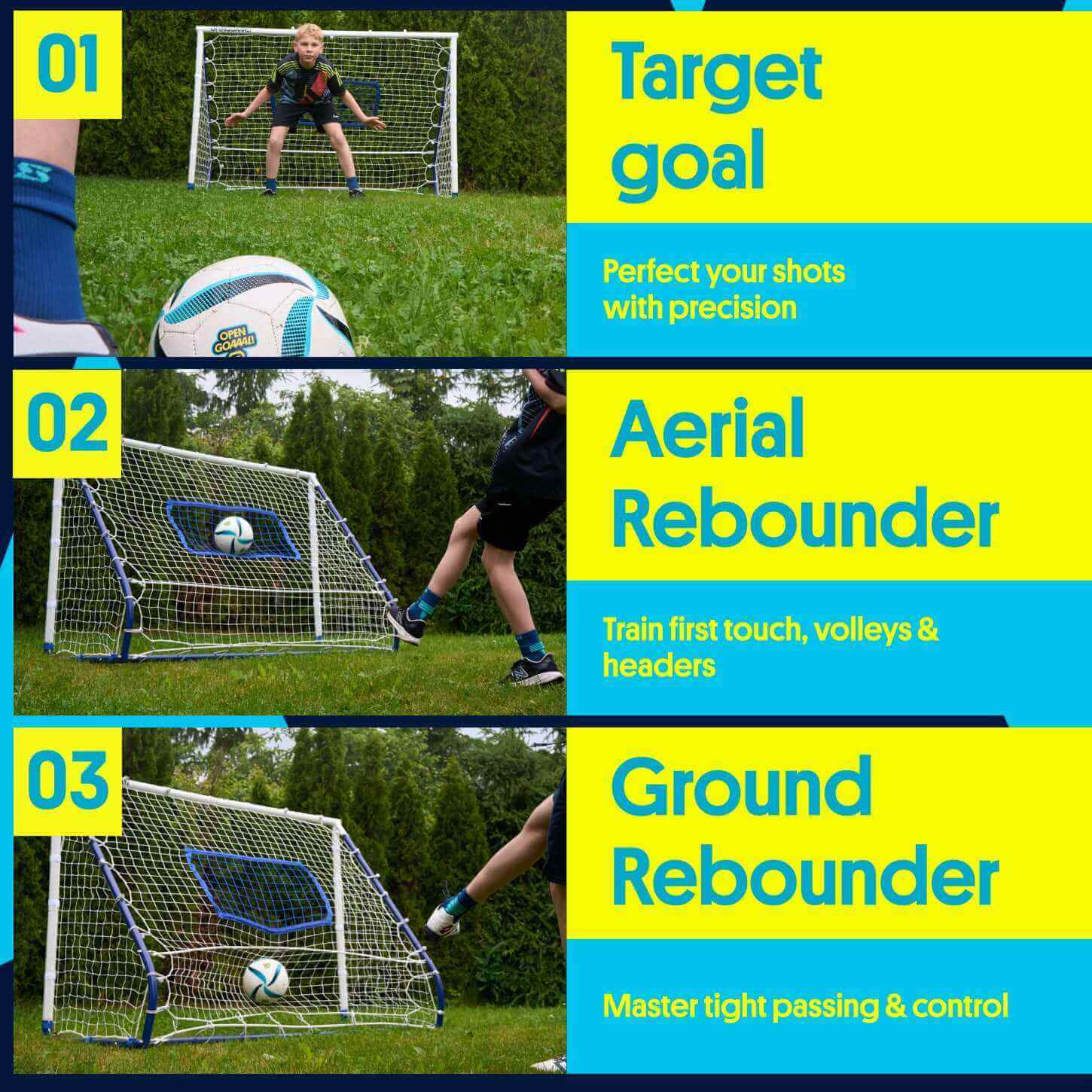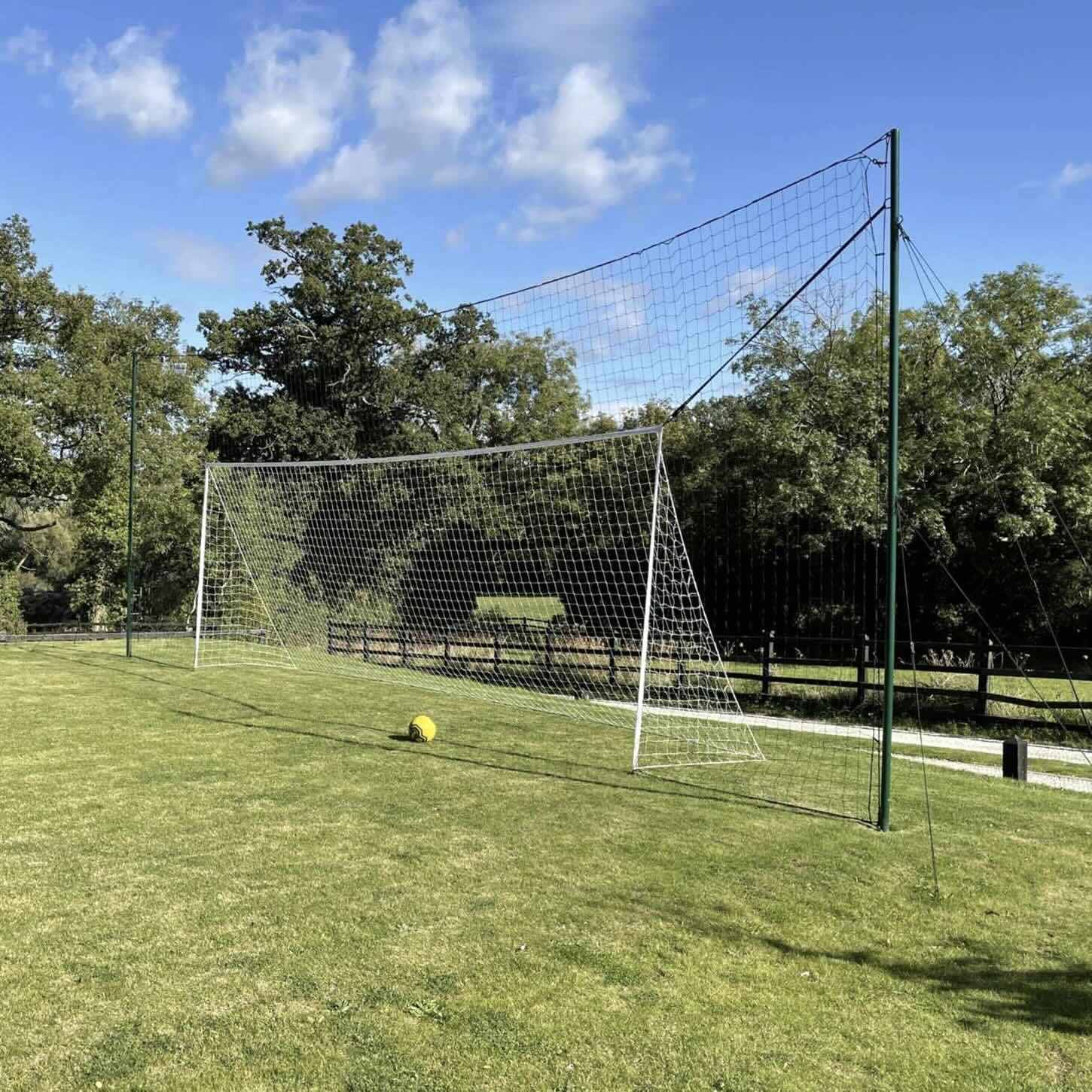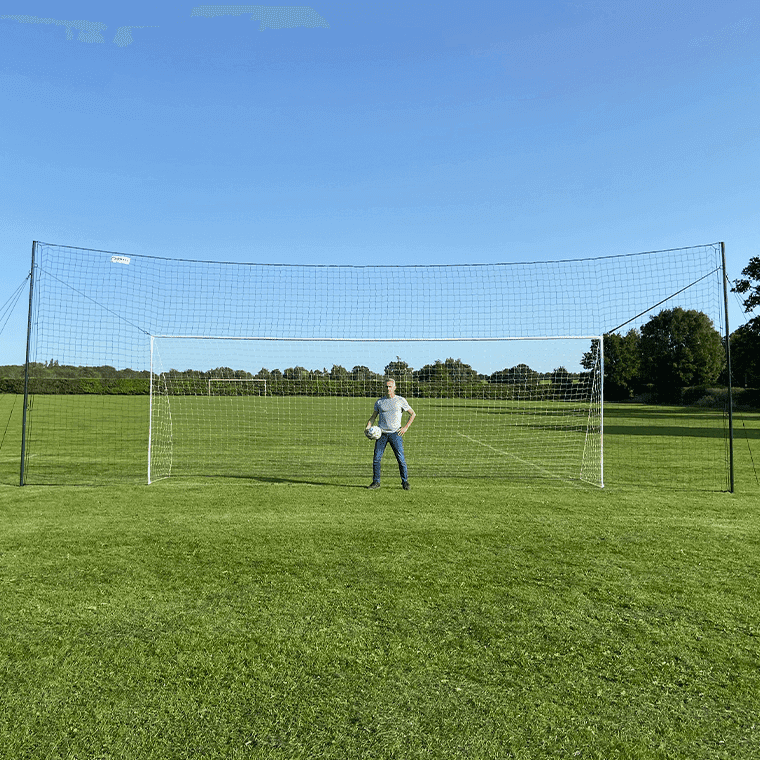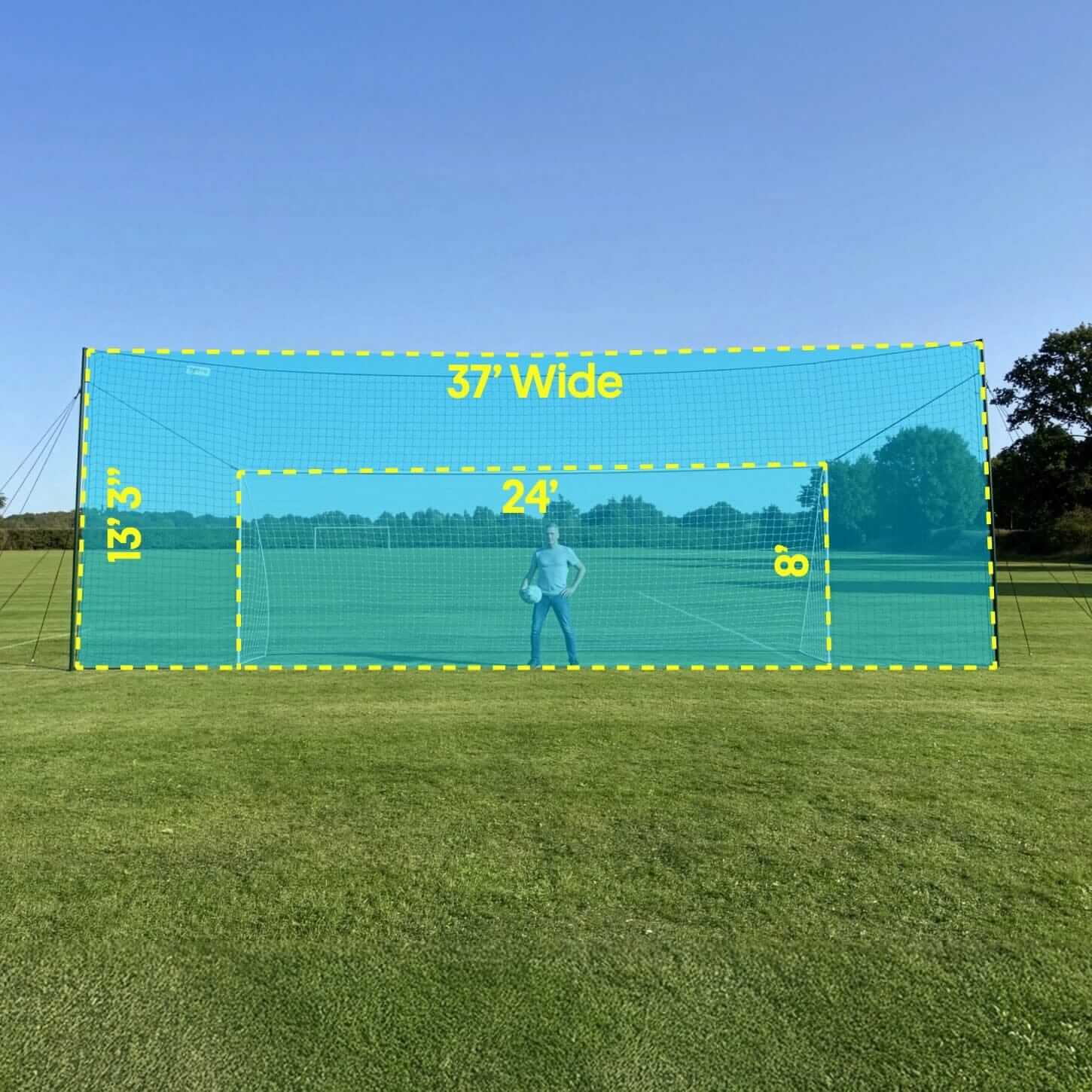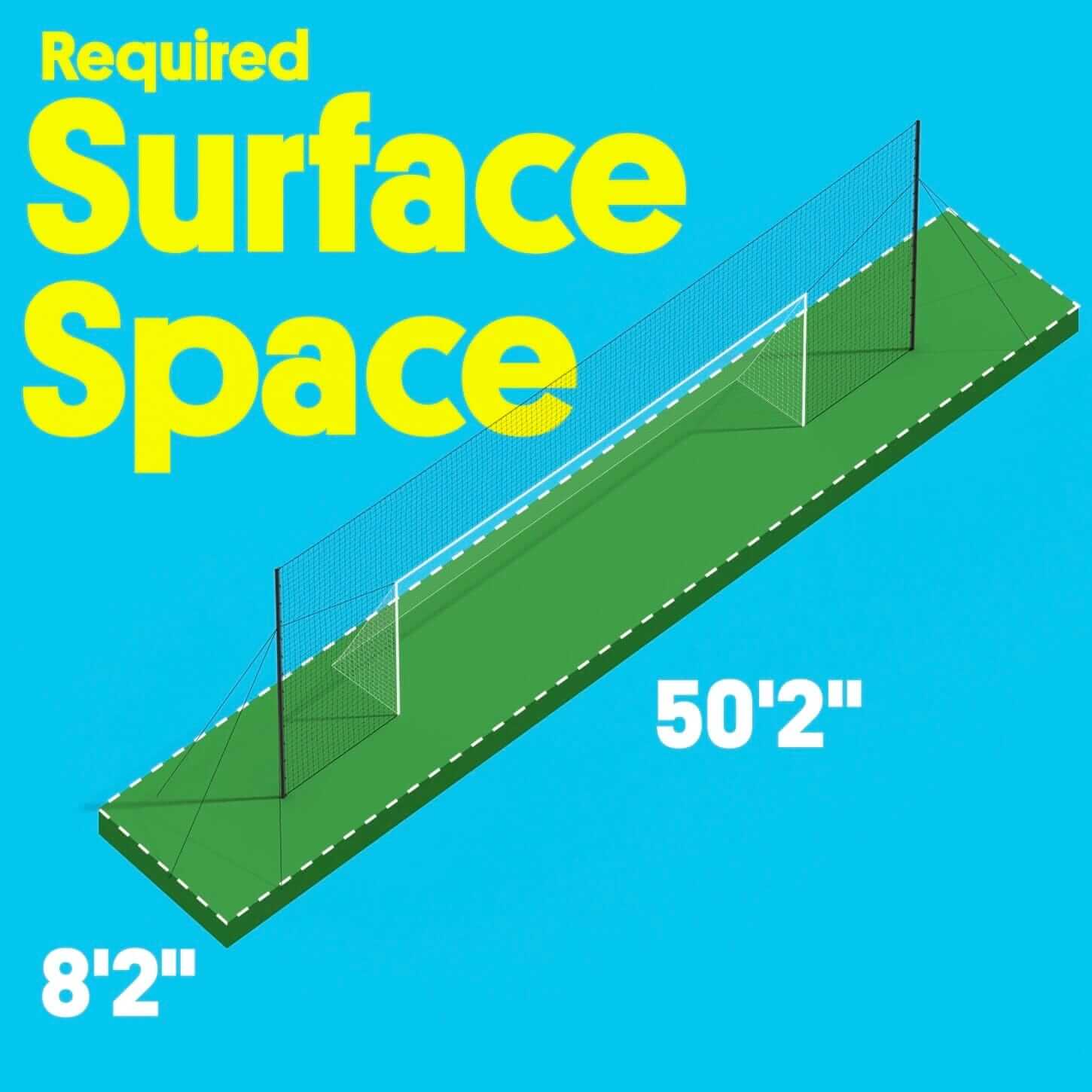If you ask me about the most dramatic moves that a soccer defender can make, the slide tackle will be in the top spot. A perfectly executed sliding tackle looks as good as a striker who dribbles forward through defenders.
But how safe is a sliding tackle in soccer?
In this article, we analyze this critical move and tell you how to perform it in the right way.
What Is a Slide Tackle in Soccer?
The sliding tackle is mostly used by players in soccer defense positions.
Technically, the defender should run alongside the attacker and then slide on the leg that is nearest to the attacker.to slide on the ground.
The opposite leg remains outstretched and is used to make contact with the ball and knock it away from the attacker.
Generally, sliding tackles are not used in normal conditions to gain ball possession. Only when the forward has lots of free ground to rush toward the goal, it is used as a last resort to prevent a goal.
What Age Can You Slide Tackle in Soccer?
Since slide tackles need a high level of precision and technique, they are the last forms of tackle that the coaches teach young players. The other reason is, the risks of injury are much higher during the tackle.
As per the US Youth Soccer rules no slide tackles are allowed for players under the age of 10. Most soccer coaches start teaching sliding tackles to U13 players with the right skills. This way, the players can attempt such tackles during high school soccer matches.
How to Perform a Slide Tackle
Here’s a step-by-step guide about how to slide tackle in the right way. Obviously, you will need hours of practice to perfect the move.
- Bend the inner leg or the leg closest to the ball while moving forward. At the same time curl the other foot towards the shin and lock the ankle. This will help you to hook the ball.
- Drop your body in the right direction and land on your hip. That way you will be in better control of your other leg. While on the ground, you should be sliding on the bent leg.
- Move the extended foot toward the ball. Make sure to keep your focus on the ball at all times. It's best to strike the ball with the laces or the tip of the cleat. Aim the strike at the center of the ball or slightly above the center.
- Try to get back to your feet as quickly as possible by taking support of the bent leg.
When a Slide Tackle is Legal and When It Is Not
Sliding tackles are perfectly legal in soccer and any player, including the goalie, can attempt them during a match. However, a rash or aggressive form of this tackle can be considered a yellow card or red card offense.
In case such physical contact happens within the box, a penalty kick can be given to the opponent team. My suggestion is, unless you are confident about winning the ball, don’t try it in the penalty area.
Note, the FIFA rules of soccer do not mention any specific restrictions on the sliding tackle.
But Rule 12 states that for any tackle that the referee considers as “careless, reckless, or using excessive force”, the opposing team is awarded a free kick. Beyond that, any move that “endangers the safety of an opponent” is also penalized by the referee.
This means it is up to the referee to decide if a slide tackle falls in this category. So, do not attempt a slide tackle from behind. Also, do not keep your studs up while tackling.
Clearly, the best sliding tackles are the ones that are perfectly timed to hit the ball first and not the opposing player.
Benefits of a Slide Tackle
When perfectly executed, a slide tackle allows a defender to move quickly and execute a clean tackle without any major physical contact. Moreover, it is an extremely effective move against a forward who has superior ball-control skills or is a faster player than the tackler.
On the downside, you are sacrificing your balance as a last-ditch effort to prevent the opponent from scoring. And once you are committed to the tackle, you can’t respond if the opponent retains possession of the ball.
Can a Slide Tackle Cause Injuries?
A wrongly executed sliding tackle can be a major cause of injury to the striker. Ankle ligament tears or sprains are one of the most common injuries resulting from such tackles.
Other than that, knee injuries including tears in ligaments are also possible during such interceptions.
FAQS
Why do soccer players slide tackle?
Soccer players use the slide tackle as a last-ditch attempt to stop a forward from moving ahead with the ball.
When should you slide tackle in soccer?
Slide tackles are usually executed when the opponent is getting away with the ball or about to take a shot at the goal.
Does it hurt to slide tackle?
If you do it with the right technique, slide tackles do not hurt on a grass or turf field.
What are the three types of tackles in soccer?
The three types of tackles in soccer are block tackle, poke tackle, and slide tackle.
Final Thoughts
The slide tackle is the most complex form of tackle and is not a part of the lessons related to the fundamentals of soccer. But it is an essential defensive move when you are playing in competitive leagues.
Practicing soccer in your backyard by using the Open Goaaal Soccer Goal + Trainer, is a great way to practice perfecting your slide tackle as a player makes their way towards the goal.



